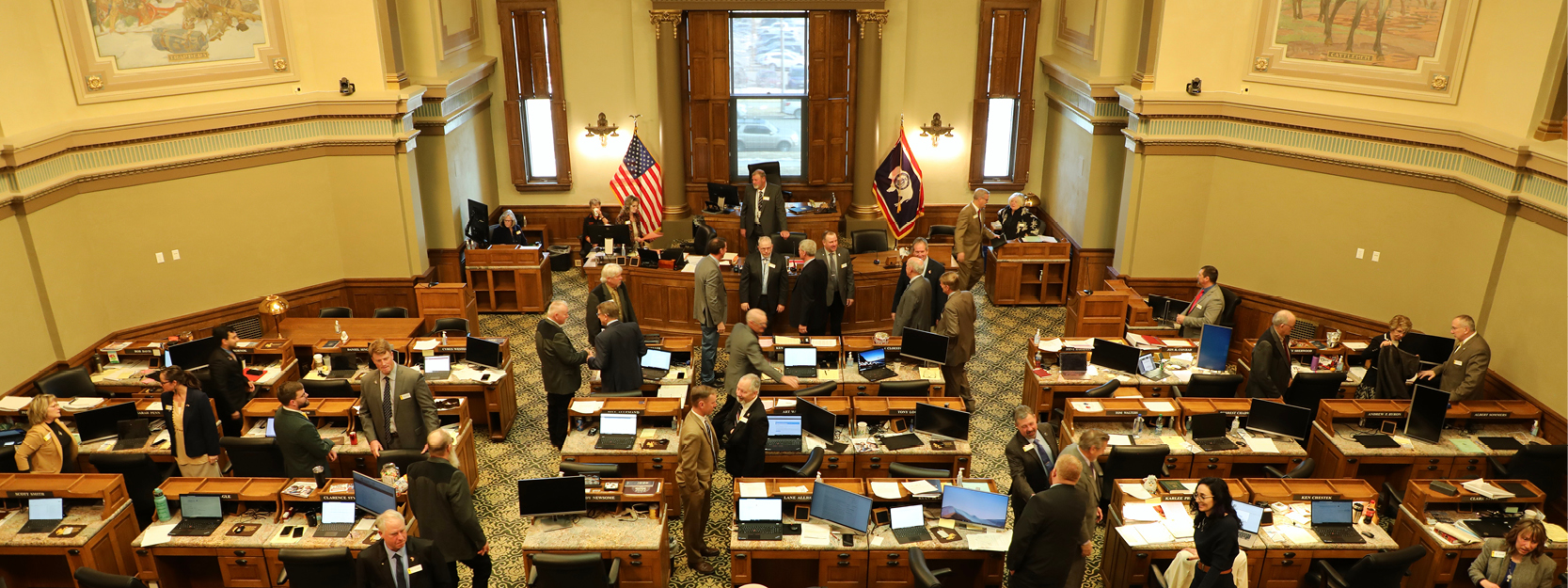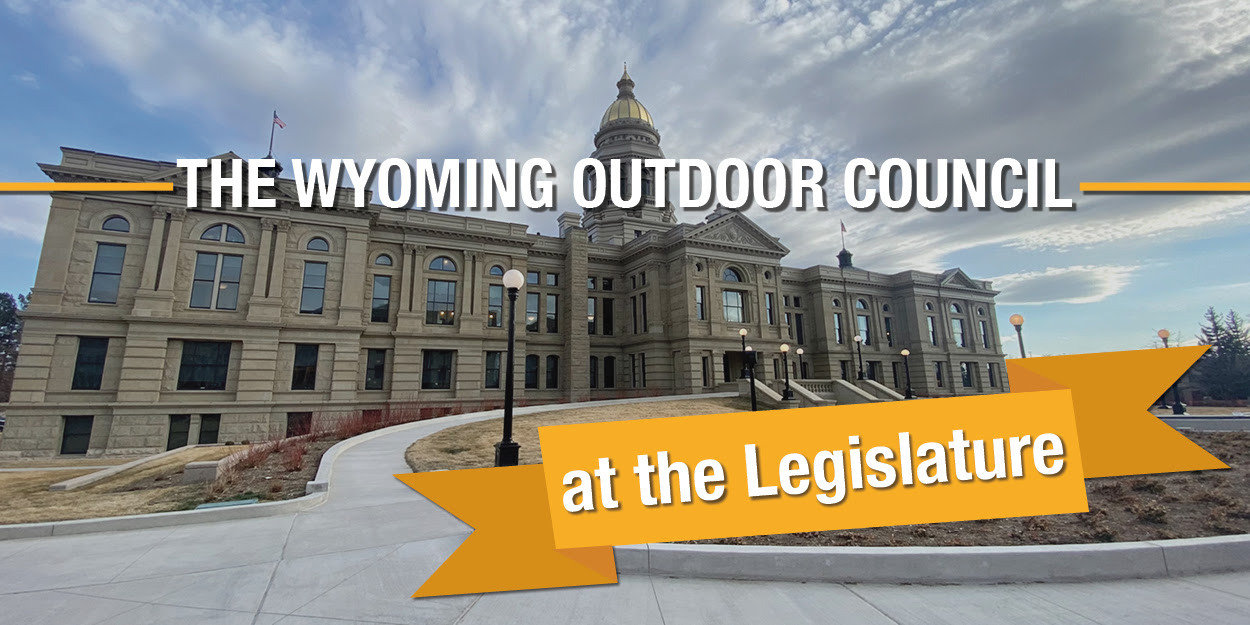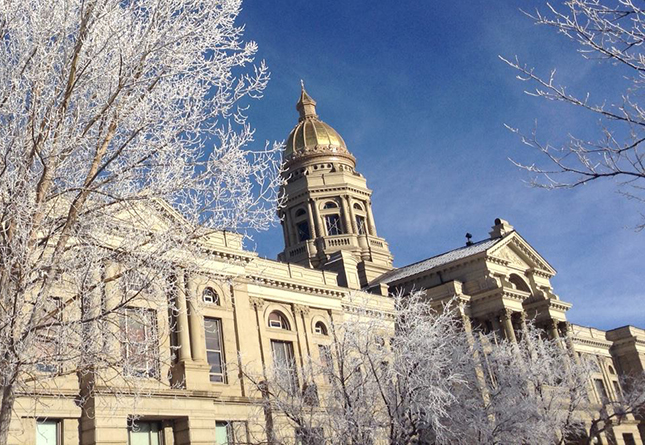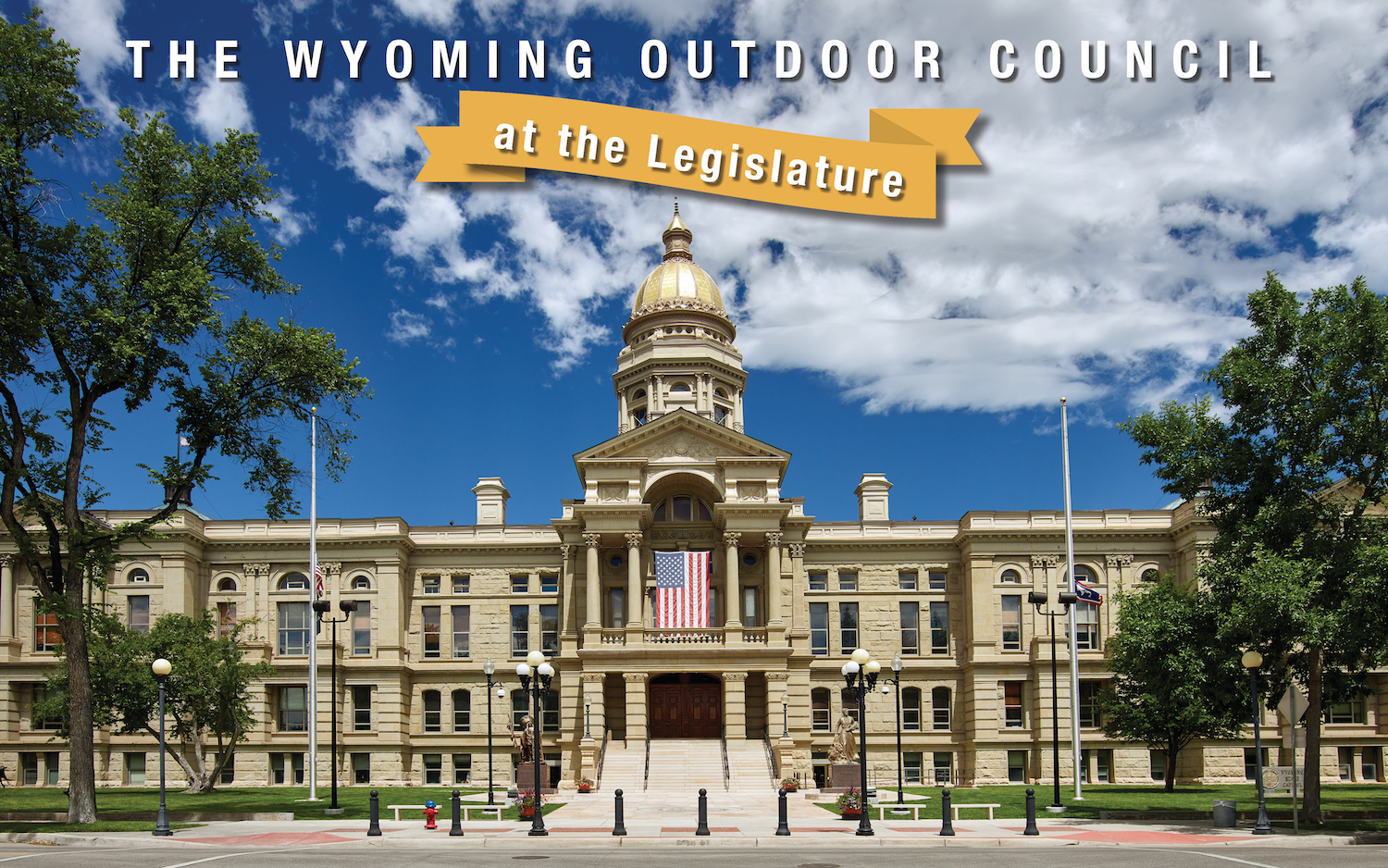Get ready for the rodeo … the 2024 session of the Wyoming Legislature is almost here!
Last May, I proudly stepped into the role of government affairs manager at the Outdoor Council. In the nine or so months since then, I’ve been singularly focused on preparing for the upcoming session. From endless reading, research, and meetings to time spent cultivating relationships, it’s all been in support of our work in the halls of the Capitol, which will kick off in just two short weeks. Soon, there will be nothing left to do but jump in the saddle and hold onto my hat.
There are already more than 150 bills on the docket — and we anticipate many more by February 14, the last day to submit bills for consideration. That means that during the session, which lasts only a whirlwind 20 days, lawmakers and lobbyists will attempt to wrangle several hundred bills.
Once the action begins on February 12, the dust won’t settle until early March. But I’ll be at the Capitol from start to finish, along with other Outdoor Council staff. Together, we’ll work to corral support for conservation-favoring bills, bust the bad ones, and keep an eye on the issues that matter most to you.
Through it all, I’ll be sharing updates with you, in the form of weekly email newsletters and action alerts as needed — so make sure you’re signed up to receive our emails! For now, read on for more information about what to expect in this year’s session.
Barrel racing through the budget
This year’s session is a budget session. That means that when lawmakers convene, they’ll be primarily concerned with debating (and eventually modifying and passing) Gov. Mark Gordon’s proposed budget for the next biennium, the two-year period from 2025–2026.
Big questions for this year’s budget session will include if or how to fill in the gaps exposed by the end of federal COVID dollars. In 2020, declining revenue from our extractive industries compelled significant budget cuts. Many of these cuts were mitigated when federal COVID relief money to the state allowed funds for these programs.
Though the threshold for introducing non-budget bills is higher during a budget session, we’ll still see plenty of other legislation including bills in response to the Rock Springs Resource Management Plan, the Rocky Mountain Power rate case, and rising property tax valuations.
For a primer on the legislative process and how a bill becomes a law, check out the infographic below.
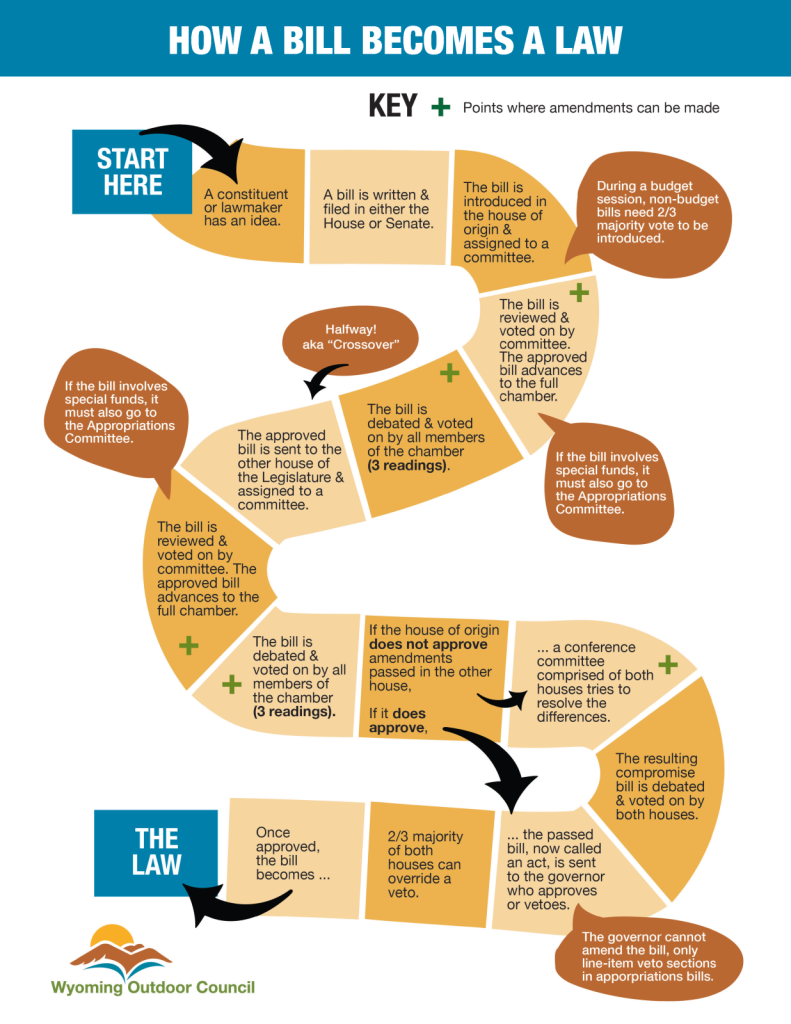
You can catch this and much more in the recording of our virtual 2024 Legislative Preview. Plus, I’ll be covering the nuts and bolts of the state’s budget in my first weekly legislative email newsletter — look out for it next week!
Spurring conservation action: What to expect from WOC
We’ll maintain a full-time presence in Cheyenne, tracking the action where it’s happening: in the halls of the Capitol.
We’ll keep a close eye on conservation bills. We’ll work to ensure development of state lands doesn’t come at a cost to Wyoming’s wildlife, clean air and clean water, and wide-open spaces. We’ll support responsible siting of renewable energy projects, advocate ample funding for the agencies stewarding our natural resources, and oppose the bad ideas that regularly creep into legislation, such as state takeover of federal lands.
We’ll share opportunities for you to make a difference. It makes an enormous difference when citizens speak up, and throughout the session we’ll be roping in help from supporters like you. Be sure to follow us on social media and sign up for our emails and text message alerts. (On our sign-up page, check “Yes, sign me up for text messages.”) Things can change quickly down there, but we’ll keep you in the know with weekly updates on key bills.
We’ll lift the veil on what can seem like a complex process. Our State Legislature webpage is full of useful resources to help you be an effective citizen advocate, including our Citizen’s Guides and a live bill tracker. You can also watch our virtual 2024 Legislative Preview, which contains expert tips for sharing your priorities and concerns with legislators.
We’ll publish our Conservation Vote Report after the session, which contains analyses of the conservation issues debated by lawmakers, as well as a record of how they voted on key legislation.
The rodeo’s fast on its way. If there’s one last thing I can offer you before we hop on the bull, it’s to not underestimate the power of contacting your elected officials, who are incredibly accessible. Here in Wyoming, when we reach out to them, they (not staff!) are the ones who will answer your emails and calls. Sharing your concerns and priorities with them can have an enormous impact.
If you have any questions about engaging in the legislative process to defend what you value most, drop me a line or visit our State Legislature webpage.
Looking forward to working with you,

